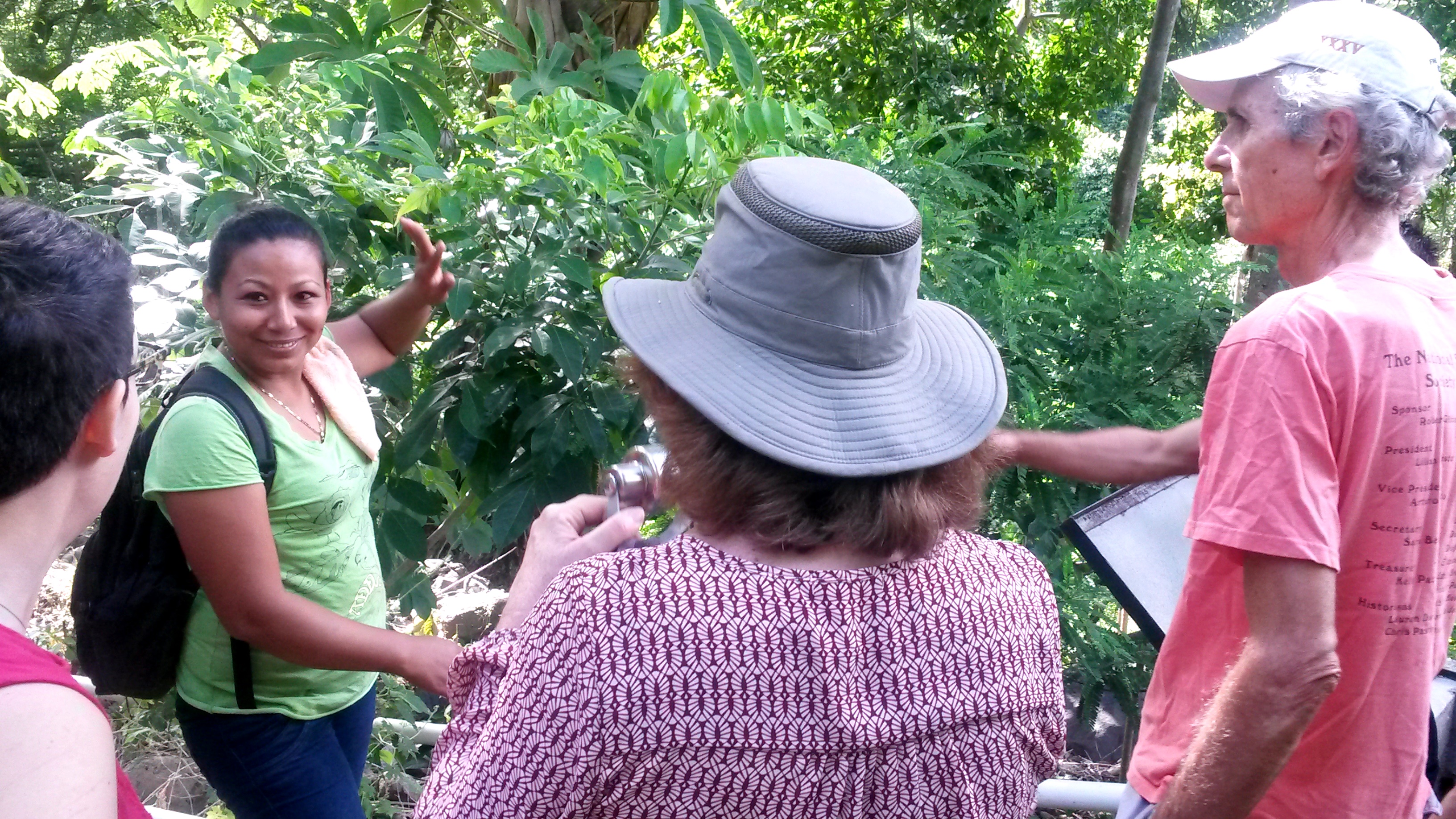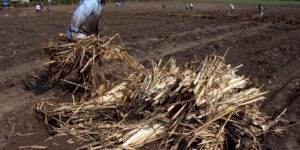Advocacy, Community Development Projects, Defending Natural Resources
Luis Aviles on his visit to MOFGA’s fair / Luis Avilés sobre su visita a la feria de MOFGA
(EN ESPAÑOL ABAJO)
From september 21st to september 23rd, the Maine Organic Farmers And Gardeners Association (MOFGA) held their annual Country Fair. This year they were kind enough to invite Luis Avilés, a member of the Popular Movement of Organic Farming (MOPAO, in Spanish) to talk about his experience as an organic farmer in San Vicente and the difficulties that they face in the area due to bad farming practices.
Sister Cities’ staff helped with the logistics of this encounter and then talked to him to know how it all went.
Luis tells us that MOPAO wants to follow MOFGA’s example and give a certification to local farmers that are giving a chance to organic farming, but they are well aware of the bureaucracy they will have to face in an initiative such as this one.
He also states how impressive was having around 60 thousand people attending to the fair and giving importance to organic farming. He says he visited a farm that used to be ran the old-fashioned way but is now becoming organic, even though this would cost half a million dollars. He had to ask the owner what was the purpose of such idea, to which he replied that he was looking at it as a long-run investment, a way to help the environment and also because there’s an interest of older people for healthier food.
Luis also talks about his radio interview scheduled to last twenty minutes that ended up running for an hour and a half, in which he answered many questions and received lots of support, he got calls from people asking how they could support what’s been doing here and he had to speak his mind. He invited them to stop consuming sugar that is obtained with a normal process and, particularly, the one that comes from El Salvador.
He says that some students showed interest in coming to El Salvador and support advocacy campaigns in San Vicente that seek to change the way sugar-cane is being processed right now.
Luis also noticed other things during his visits: Maine’s advantages. The advantage of having secure costumers that receive the product directly from the producers, with no presence of middle-men taking most of the profit and also, the advantage of being able to purchase machinery that makes farming easier.
“They are not doing anything different than what we do here, the difference is their advantages – and the amount of land they have”, he says.
With his presentation at the fair, many people realized for the first time the risks many people go through in order to bring sugar to their tables. Many said they have always simply looked for the cheapest one, without realizing what that entails. Others said they had always looked for the whitest, so he had to explain how many (polluting) chemicals are needed to make it look that way.
Luis also explained the attendees that people burn the field to facilitate the sugar-cane harvesting and that the reason why MOPAO is not trying to have an organic field of cane is the amount of chemicals thrown all around, which makes impossible for crops to stay really free of toxics, despite all the efforts.
People seemed willing to pay more after learning of the efforts in the area of San Vicente and of all the people that has died due to kidney failure.
Happily, MOFGA members pledged to share his presentation with other people so they can also learn about this delicate situation.
You can hear the full audio (in Spanish) at the bottom.

Del 21 al 23 de septiembre, la Asociación de Jardineros y Agricultores Orgánicos de Maine (MOFGA, en inglés) realizaron su feria anual. Este año tuvieron la amabilidad de invitar a Luis Avilés, miembro del Movimiento Popular de Agricultura Orgánica (MOPAO) para que hablara de su experiencia como agricultor orgánico en San Vicente y las dificultades que enfrentan por las malas prácticas agrícolas en la zona.
El equipo de Ciudades Hermanas ayudó con la logística para este encuentro y luego habló con él para saber cómo le había ido.
Luis nos cuenta que el MOPAO quiere seguir el ejemplo de MOFGA y poder certificar localmente a los productores, reconociendo sus prácticas orgánicas, pero están muy conscientes de la burocracia que implica un proceso como este.
Además, cuenta cuán increíble fue que alrededor de 60 mil personas hayan asistido a la feria y le estén dando importancia a las prácticas agrícolas orgánicas. Nos dice que visitó una ganadería que solía ser manejada de manera convencional y que ahora estaba transformándose en orgánica, a pesar de que hacer esto costaría medio millón de dólares. Tuvo que preguntarle al dueño cuál era su objetivo. A lo que él respondió que lo veía como inversión a futuro, que hay una conciencia por el medio ambiente y que sabe el interés que hay por parte de los adultos mayores de consumir alimentos más sanos.
Luis comparte también que su visita a la radio programada para veinte minutos se convirtió en hora y media, en la que respondió a muchas preguntas y muestras de apoyo, que llamó gente para preguntar cómo podían apoyar y que tuvo que dar su opinión. Él los invitó a dejar de consumir azúcar que es obtenida con métodos convencionales y, particularmente, la de El Salvador.
Dice también que algunos estudiantes mostraron interés en venir a apoyar las campañas de incidencia en la zona de San Vicente que buscan que se mejoren las prácticas relacionadas a la siembra de caña de azúcar.
Luis notó también otras cosas en sus recorridos: las ventajas en Maine. La ventaja de tener un mercado seguro en el que se puede entregar el producto directamente al consumidor, sin intermediarios que acaparen la mayor parte de la ganancia y también la ventaja de poder comprar maquinaria que facilite las tareas agrícolas.
“No están haciendo nada distinto de lo que hacemos, la diferencia son las ventajas – y la cantidad de terreno con la que cuentan”, expresa.
Con su presentación en la feria, muchos se dieron cuenta por primera vez de los riesgos que la gente de El Salvador corre solo para que un gramo de azúcar sea llevado a sus mesas. Muchos dijeron que siempre han buscado simplemente el azúcar más barata, sin saber lo que esto implica. Algunos dijeron que siempre habían buscado la que era más blanca, por lo que él les explicó cuántos químicos (contaminantes) son necesarios para que esta luzca así.
Luis también explicó a las personas que las quemas de cultivos se realizan para facilitar la corta de la caña y que la razón por la cual el MOPAO no está dedicándose al cultivo orgánico de esta es la cantidad de químicos lanzados a los alrededores, imposibilitando que las cosechas se mantengan libres de tóxicos a pesar de los grandes esfuerzos.
La gente se mostró dispuesta a pagar más al aprender de los esfuerzos que se están haciendo en la zona y de cuántas personas continúan muriendo en El Salvador a causa de la insuficiencia renal.
Felizmente, los socios de MOFGA se comprometieron a compartir la presentación con más personas para que también estén conscientes de esta delicada situación.
Puede escuchar la conversación entera a continuación:



